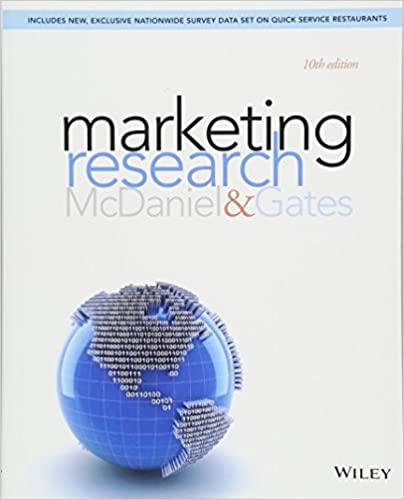Ideal marketing researchers need good quantitative skills. More importantly, in todays competitive and dynamic markets, new researchers
Question:
Ideal marketing researchers need good quantitative skills. More importantly, in today’s competitive and dynamic markets, new researchers need other skills and characteristics.
Lifelong Learners
The best researchers are avid readers, travelers, online searchers, or news junkies—in short, lifelong learners. Their accumulated knowledge and skills are often applied in surprising ways. For example, analogies from evolutionary biology can help explain the competitive situation in a market. Researchers are curious people. They want to know about human behavior, attitudes and opinions, and their underlying reasons and motivations. A curious person asks question, listens carefully to the answers, and probes for more information from respondents.
One test for curiosity in the hiring process is to observe how many questions the candidate asks in the interview, particularly questions on subjects other than compensation. However, watching a candidate conduct a research interview or focus group is the better test.
Easy Adapters
In addition to a solid academic background, successful hires must be able to adapt easily and understand that brevity is prized in the business world. New researchers have to get used to corporate deadlines and move faster, sometimes sacrificing methodological precision and sometimes arriving at conclusions with less-than-perfect data.
In addition to a broad educational background, I advise new entrants to get experience as an interviewer. There is no substitute for the learning you acquire from actually conducting an interview. It enhances your ability to write a reallife questionnaire that respondents will be willing to answer.
Partners
The in-house researcher is not just a messenger between corporate management and an outside vendor. Ideally, a researcher should act as a partner with the strategist or decision maker. He or she must understand the context and information needs of the business and, based on management’s research objectives, help create questions and then collect data to answer the questions. Thus, every researcher should take advantage of opportunities for education and training offered by their organization to obtain the business knowledge necessary for context.
Questions
1. What skills do you think are required to be a great marketing researcher?
2. Where would you rank communication skills on your list?
Step by Step Answer:






